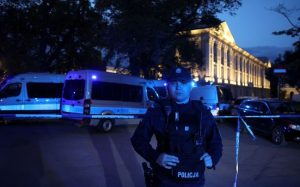Algeria and Mali clash over security approach amid diplomatic strains
3 min readTensions between Algeria and Mali have been intensifying due to differing views on security and alleged interference in Mali’s internal affairs by Algeria. The conflict began after comments made by Algeria’s Foreign Minister, Ahmed Attaf, regarding Mali’s decision to reclassify certain northern separatist groups, including signatories of the 2015 Algiers Agreement, as terrorist organizations.
Attaf’s remarks highlighted Algeria’s belief that these separatist groups should remain central players in peace talks, emphasizing that a military solution would not resolve the situation. He argued that a peaceful dialogue was essential to address the longstanding tensions in the region, and that the groups involved should be treated as legitimate actors in the negotiation process.
However, Mali strongly opposed this stance, viewing it as an infringement on its sovereignty. The government in Bamako sees the reclassification of these groups as crucial to addressing the security threat posed by separatist and militant factions in the northern part of the country. Mali has grown increasingly frustrated with Algeria’s position, perceiving it as meddling in its domestic policies and undermining the country’s sovereignty.
The dispute between the two nations also highlights deeper divisions over how to approach the ongoing conflict in northern Mali. Algeria has long been an advocate for dialogue and diplomacy, and it has played a significant role in facilitating peace talks between various factions. Algeria’s support for a negotiated settlement stems from its concern that a military approach could exacerbate the situation and lead to further instability.
In contrast, Mali has increasingly shifted toward a military solution in recent years. The Malian government, which has faced significant challenges in dealing with separatist groups and Islamist militants in the north, believes that military force is necessary to regain control of its territory and eliminate the threats posed by these groups. Mali’s government has been working with regional military forces to confront these insurgent movements directly, and it has become less reliant on external mediation and dialogue.
The rift between the two countries comes at a time when relations between Mali and other international partners, including former colonial power France and other Western nations, are also strained. Mali’s military government, which came to power through a coup in 2021, has increasingly distanced itself from its traditional allies, particularly France, and sought closer ties with countries such as Russia. This shift in alliances has been met with criticism from the West, but Mali has remained steadfast in its position, asserting its desire for greater autonomy in handling its security and diplomatic affairs.
Algeria, for its part, has expressed concern about the deteriorating security situation in the Sahel region, which includes Mali. The rise of jihadist groups and the ongoing instability in neighboring countries such as Burkina Faso and Niger have raised alarms across the region. Algeria, which shares a border with Mali, is particularly concerned about the spillover of violence into its own territory, and it has been involved in various diplomatic and military efforts to combat extremist groups in the region.
Despite the disagreements between the two countries, both Algeria and Mali share an interest in stabilizing the Sahel region and preventing the spread of jihadist insurgencies. However, their contrasting approaches to the conflict and the role of diplomacy versus military force are at the heart of the current tensions.
The growing rift between Algeria and Mali is a reminder of the complexities of regional politics in North and West Africa. It underscores the challenges that countries in the Sahel face as they seek to balance internal sovereignty with the need for international cooperation to address security threats. The dispute also highlights the difficult choices that countries like Mali must make as they navigate the delicate balance between military action and diplomatic negotiations in their efforts to combat extremism and bring lasting peace to the region.






